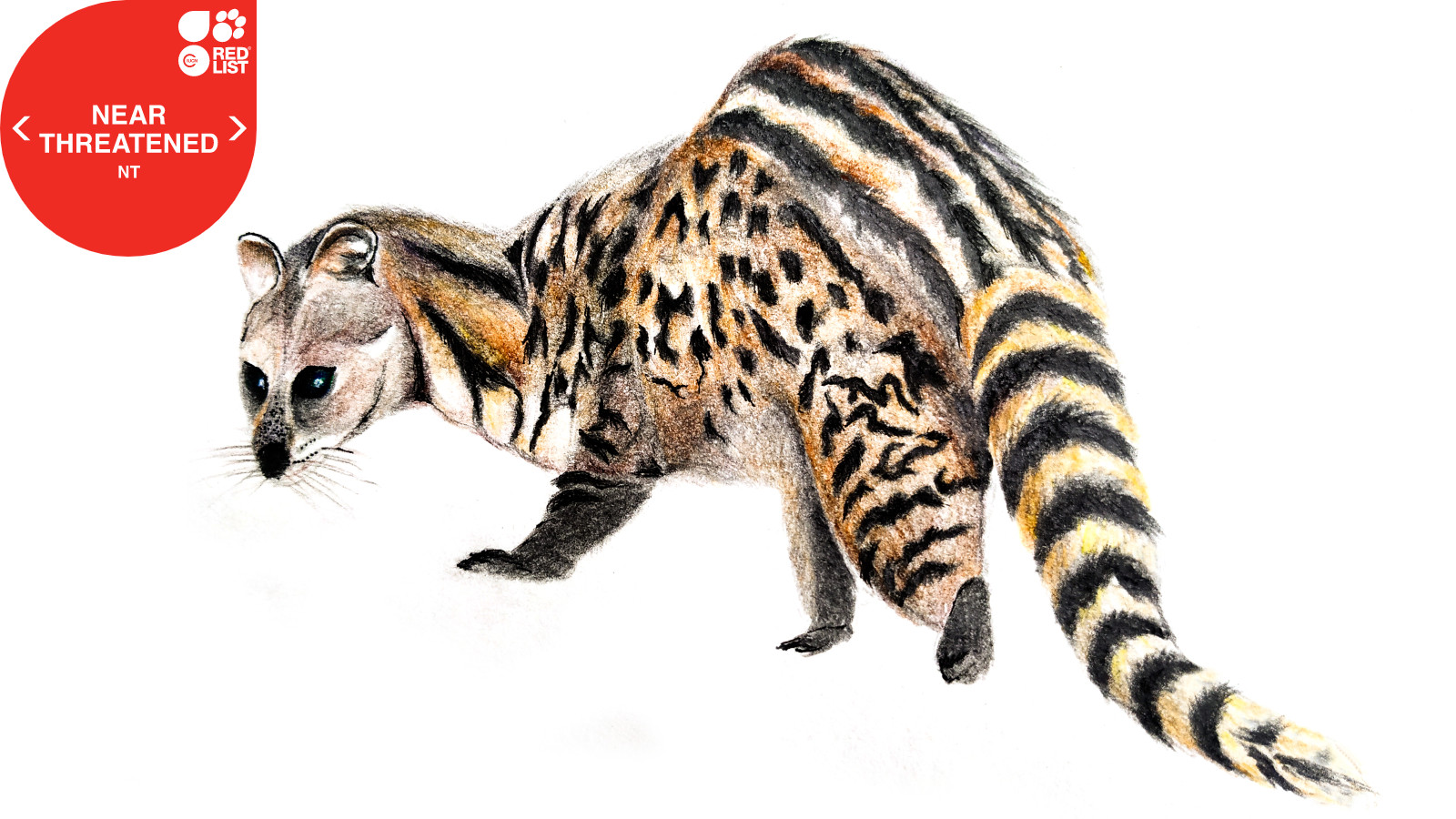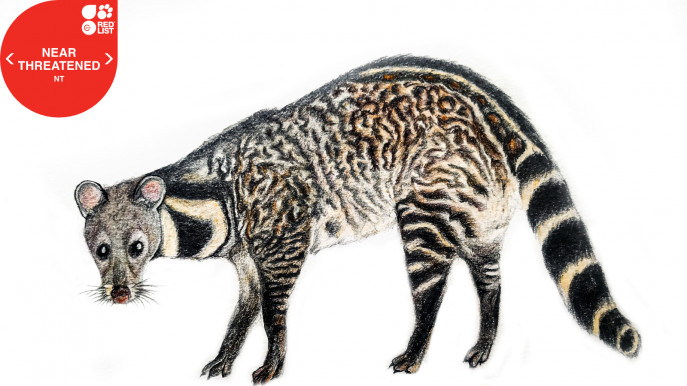Civets: Nocturnal carnivores facing extinction
Civets are innocuous creatures, ambassadors of homestead jungles of Bangladesh. Weighing mostly between 4–10 kg, they are among the least cared for mammals in the country

In rural Bangladesh, almost everyone can relate to a distinct, pungent, Pilau- or butter rice-like smell that comes from certain kinds of animals. Bham, Khatash, Gondhogokul as they are known in the local tongue — civets if you want to address them in English — are indigenous creatures of village forests, or at least they used to be known as such.
Despite living side-by-side with humans since time immemorial, civets are now in a precarious state. Village forests and jungles, their homesteads for generations, are disappearing fast. Much like their habitats, civets are vanishing in silence.
These shy and secretive, nocturnal and harmless civets are so forgotten that community members that share the space with these mammals wind up killing them. This is a story of some of the most looked down upon mammals in Bangladesh.

Who are civets?
Civets belong to the carnivore family Viverridae. This family holds small to medium-sized carnivorous mammals that feed on insects, birds, rodents, and other small animals. Civets are able hunters, having stocky bodies and sharp teeth.
They also have a preference for fruits and nuts, and are often evolved to have an omnivorous diet. With small legs and often an arched back, the animal resembles a feline stature.

Civet claws are semi-retractable and the snout is dog-like and narrow. Many civets are agile climbers and lead an arboreal life aided by powerful hind legs.
Species in Bangladesh
According to the International Union for Conservation of Nature (IUCN) Bangladesh Red List Assessment, it is safe to say that at least five viverrid species reside in Bangladesh: Large Indian civet, small Indian civet, Asian palm civet, Masked palm civet and Binturong.
The latter two are forest species found only in the hilly regions of Sylhet and Chattogram. The other three reside countrywide. Despite their wide range, civets are rarely seen nowadays. Some civets, particularly the Asian palm civet and small Indian civet, choose human settlements, old burrows, and buildings as nesting places.

The large Indian civet, Boro Baghdasha in Bangla, can reach about 36-inch from head to body. Mostly ground-dwelling and living in homestead jungles and forests alike, large Indian civets are becoming rarer everyday.
The giant in the civet family is Binturong (Bash Valluk in Bangla). A resident of hill forests, they match the size of large civets but have fluffy, powerful tails and shaggy, black coats. Because of a combination of furry and feline appearance, they are often called bear-cats. An arboreal animal, they are the largest of all 35 extant viverrid species, but their weight barely reaches the 15 kg mark. Binturongs are sought after in the illicit exotic pet trade.
All civets emit a strong odour. This comes from a scent gland in the anal pouch and resembles, as stated before, cooked Pilau or butter rice. It's a strong deterrent against predators.
In China, and Southeast Asia, palm civets are commercially hunted and farmed as their odour gland secretion is an essential ingredient in some perfumes. Asian palm civets are used in the Kopi Luwak coffee industry where they are force-fed coffee cherries for the fermentation process of beans.
Human-civet conflict
Alongside jackals, fishing cats, and jungle cats, civets are not tolerated across Bangladesh. They are considered a threat to poultry and fruit orchards. In the last two decades, rural Bangladesh has gone through acute landscape changes.

Population booms, mechanised agriculture, and destruction of village forests and native habitats, wide-scale plantation of commercial tree species are increasingly threatening civets' existence.
Civets are also sought after by traditional medicine men for their scent glands. Some ethnic minority groups hunt them as a delicacy. Slowly but surely, these amazing animals are disappearing from our diverse ecosystems.
In recent times, it has been observed that civet encounters are often misrepresented. Most media label civets as 'rare and aggressive animals', feeding panic in the already uninformed locality.

An integral part of the ecosystem
Civets, though some of them hunt poultry or raid fruit orchards occasionally, shouldn't be considered a pest, considering their vital role in ecological balance. Overall civet diet consists of a wide range of insects and rodents, sworn enemies of food crops. Civets are vital in the seed dispersal of many native trees such as figs.
Destruction of civet habitats and killings can cause a slow and inimical upheaval in the local ecosystem. Compared to the positive role they play, knowledge about these strange mammals is minimal, and studies about their decreasing trend, ecology and behaviour is also scant.

As a result, our civets are facing localised extinction in the peri-urban areas of Bangladesh.
Civets might not be charismatic enough to draw the conservation spotlight. However, without creating the mass acceptance of small, uncharismatic mammals, all conservationist efforts for this iconic megafauna are doomed to collapse in time.



 Keep updated, follow The Business Standard's Google news channel
Keep updated, follow The Business Standard's Google news channel
















